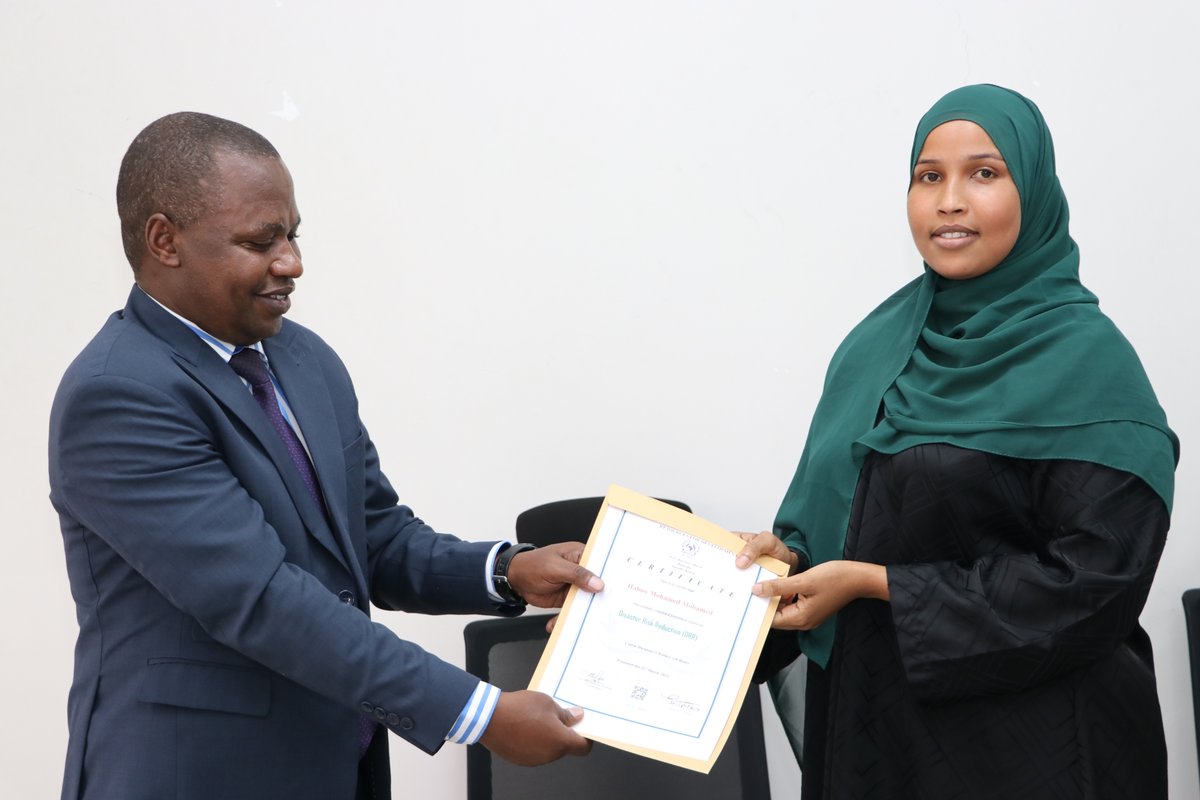In collaboration with the Food and Agriculture Organisation's Somalia Water and Land Information Management (FAO SWALIM) Project, the Regional Centre for Mapping of Resources for Development (RCMRD) recently conducted a four-week training on Disaster Risk Reduction and Management at RCMRD, Nairobi,Kenya. The four-week training aimed to empower Somalia's government ministry staff in disaster risk reduction (DRR), recognizing the country's vulnerability to recurrent natural disasters and the need for effective mitigation strategies. The training targeted individuals involved in disaster management, emergency response, and risk mitigation from both the federal and State governments of Somalia.
Throughout the training programme, participants engaged in case studies, group discussions, and practical exercises to apply DRR principles in real-world scenarios. The course emphasised the utilisation of geospatial knowledge and information management (IM) techniques to address disaster risks, particularly floods and droughts. By the end of the training, participants had gained a comprehensive understanding and practical skills in geospatial data analysis, IM, and DRR strategies.
The benefits of this training extend beyond individual skill development. Somalia's government and FAOSWALIM stand to benefit significantly from enhanced emergency preparedness, efficient resource utilisation, and improved stakeholder collaboration. With effective emergency response efforts, and build resilience within communities across Somalia. Ultimately, investing in DRR training initiatives like this not only saves lives and protects livelihoods but also contributes to the long-term sustainability and resilience of vulnerable communities in Somalia. By equipping government officials with the necessary skills and knowledge, RCMRD and FAOSWALIM are paving the way for more effective disaster management practices and sustainable development outcomes in the region.















